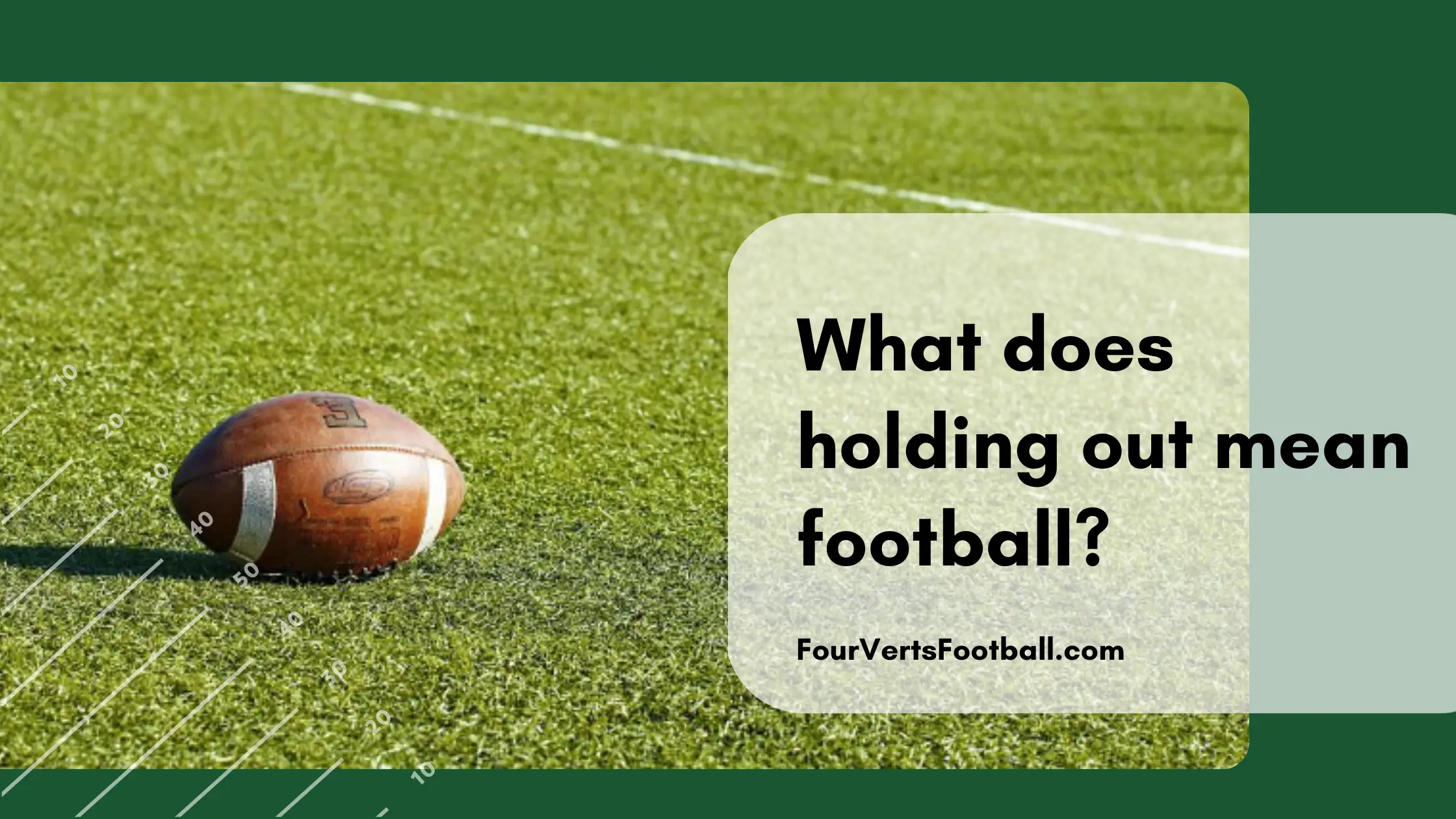Holding out in football occurs when a player sits out from activities with the team due to a dispute. Generally, holdouts are caused when a player wants a new contract or wants to be traded.
In football, the only real bargaining chip that players have is their decision whether or not to play.
If a player believes that he is being treated unfairly holding out is a common method used to show they are upset with the treatment they are receiving.
The idea behind a holdout is that the team will not want to play without their player. If the player decides to hold out the hope is the team will see they must meet their demands in order to get them to play.
Do holdouts cost players money?
Yes, the biggest detriment to holding out as an NFL player is the fact that it can cost them money in their prime earning years.
By holding out in football players can lose large sums of money. When players start their holdout it is usually offseason workouts that will be skipped first.
Skipping out on OTAs can result in a loss of income depending on how a player’s contract is set up. Once they start to skip training camp almost all players will begin to see financial penalties.
A roster bonus applied during training camp would be an example of income that a player would lose for holding out.
If a player continues their holdout once the season starts then they are going to lose a lot more money. A player’s salary for the season will not be paid out if they decide to skip the games altogether.
For some players, they believe this is worth it as they wait for a big contract. But for players like Leveon Bell, this decision did not go very well for them.
Why do players hold out in football?
The two main reasons that players hold out in football is due to new contracts and trade requests.
Contract disputes
Contract disputes between a player and the front office are the most common reason for players to hold out.
Football is a dangerous sport and one bad play can result in an injury that changes your career. Oftentimes when talking about a new contract players can become jaded and believe they are not being valued.
During this time the players are often still playing and risking their health for the team.
If a player feels disrespected enough he may opt to sit out until the contract is settled. This puts pressure on the front office as players that sit out tend to play a large role on the team.
Sitting out also makes the contract dispute public which can result in pressure being placed on the front office by the fans. Though the player’s reputation will always take a hit when they decide to start skipping practices and games.
The other reason that players will hold out is when they request a trade. In the NFL several players will request a trade each year, there can be many different reasons why a player may decide to put in a trade request.
Putting in a trade request does not always mean that a player is going to be traded right away. Some teams may try to delay the process hoping the player will change his mind.
In these situations, it is common for the player to hold out in order to make trading the player the best option for the team. This can expedite the process and get the player on a new team in a shorter amount of time.
That is all on holding out in football learn more about football player trades by reading our article on the trade deadline.

